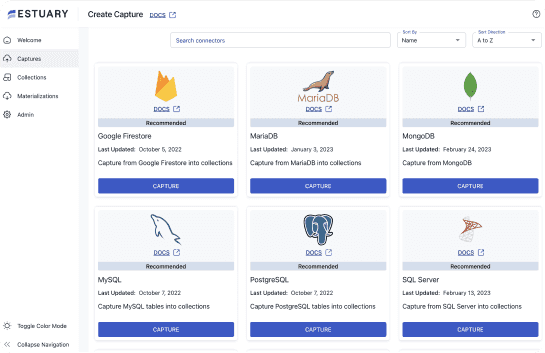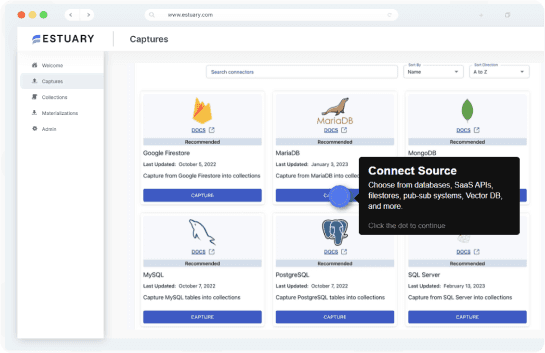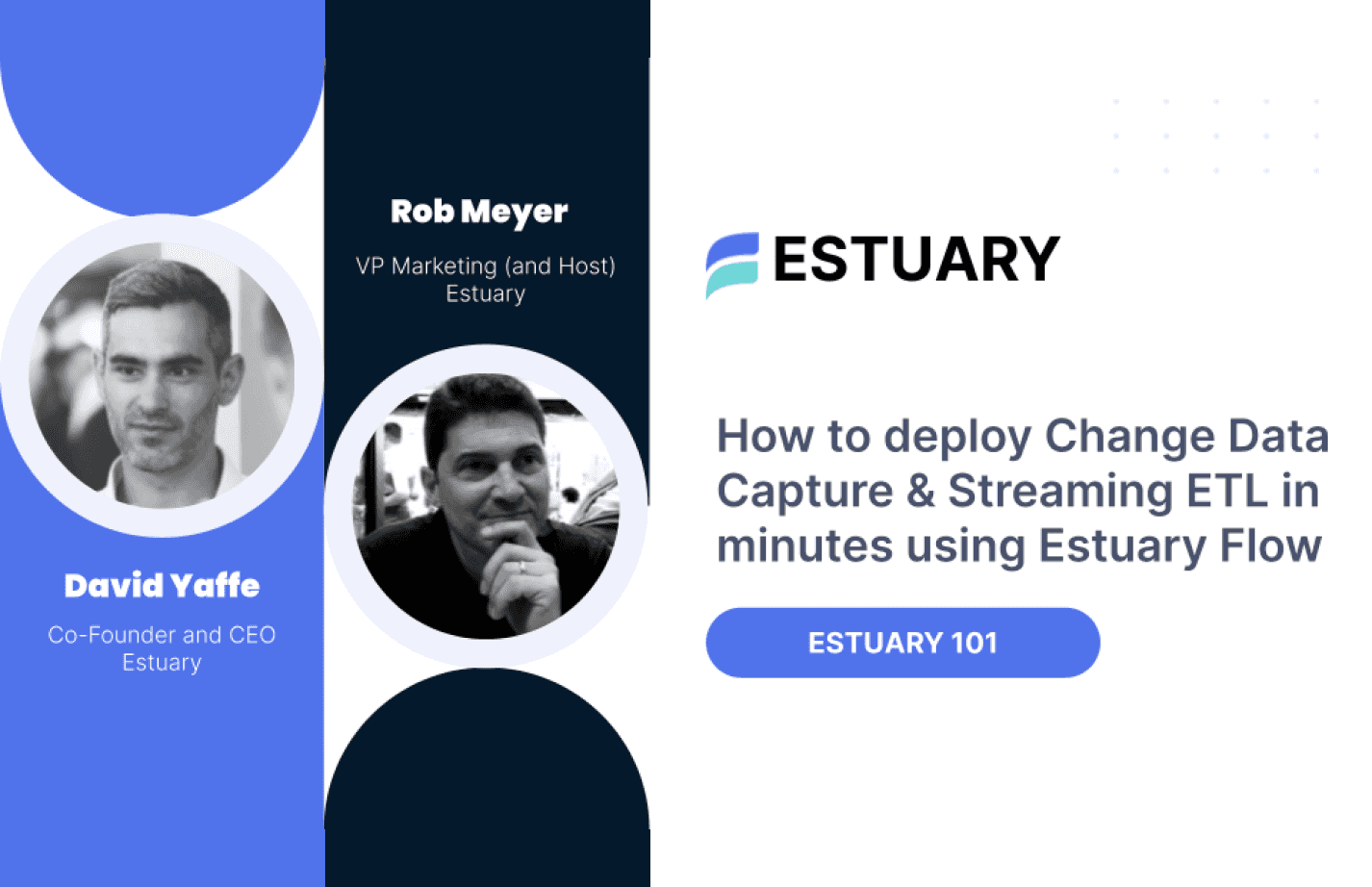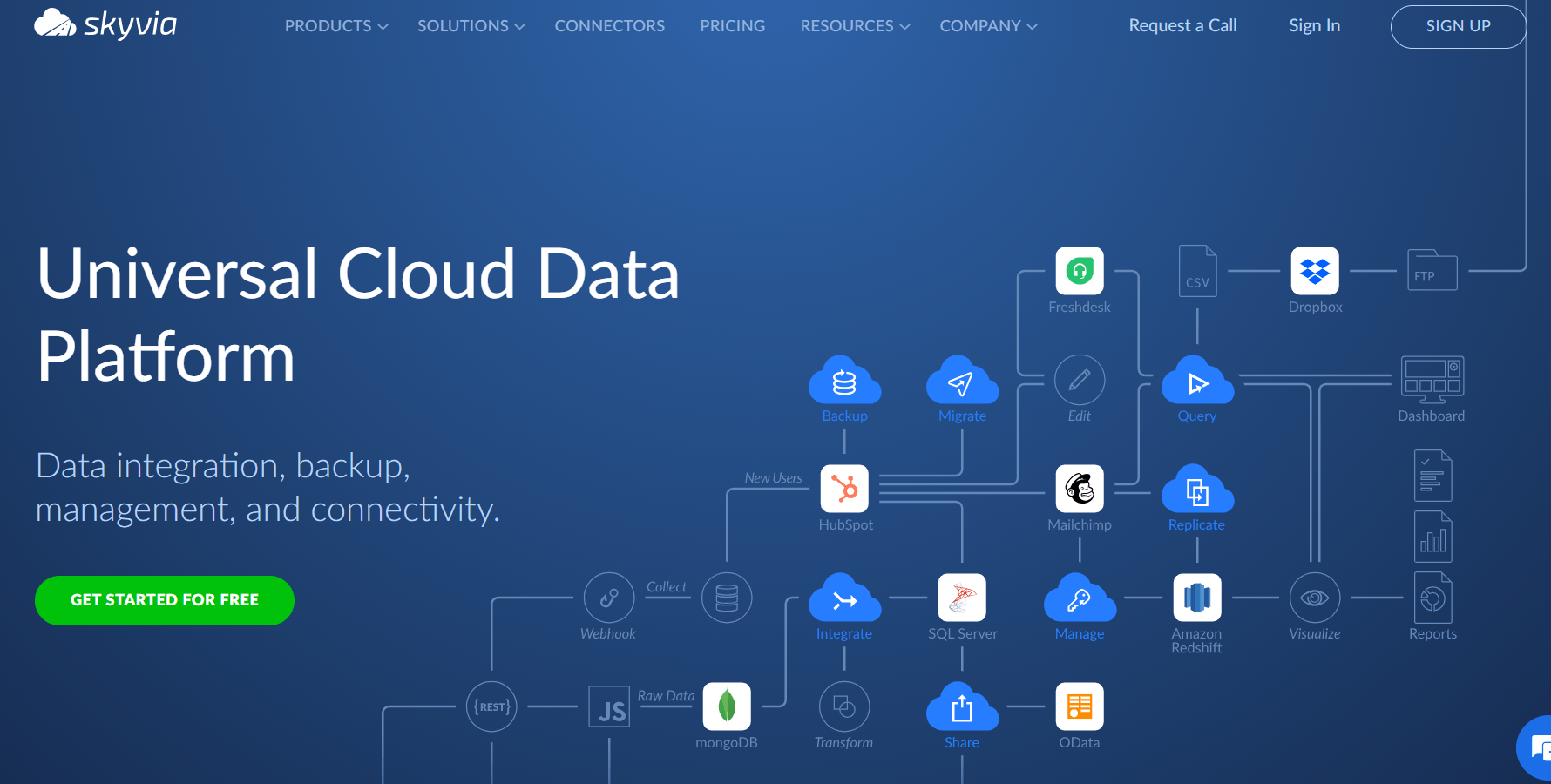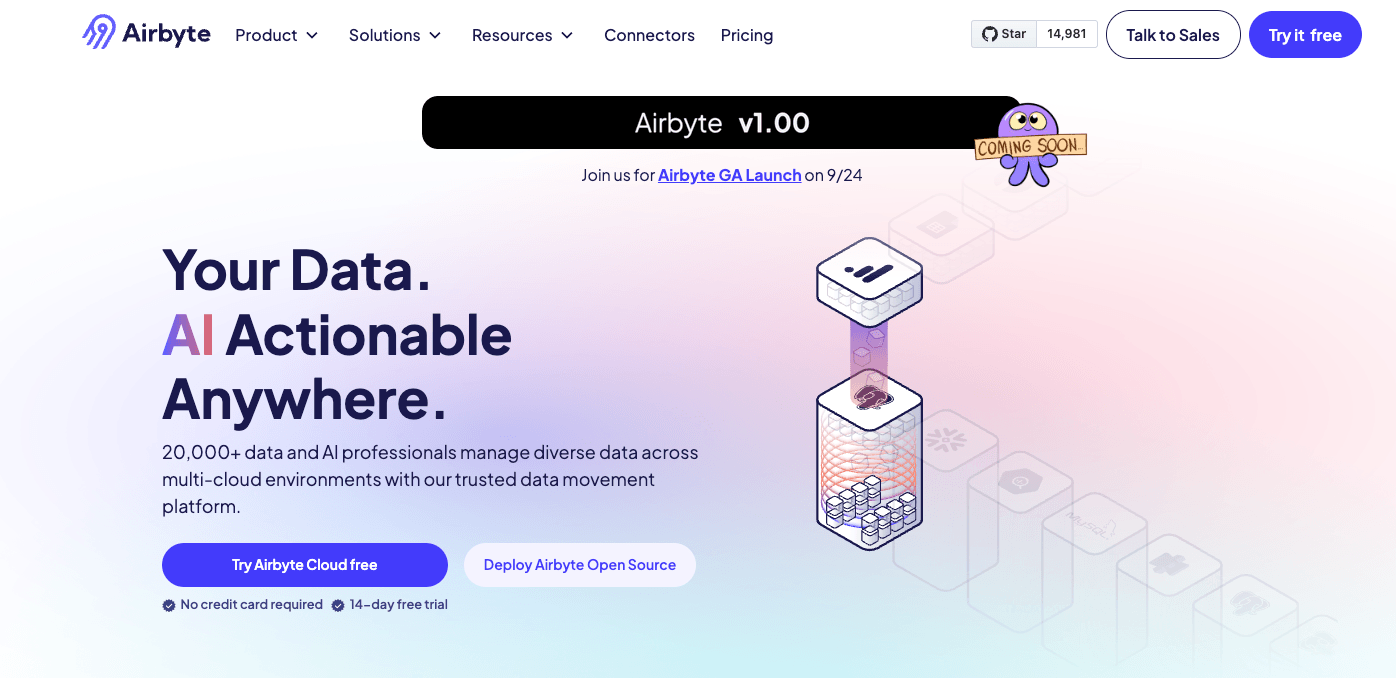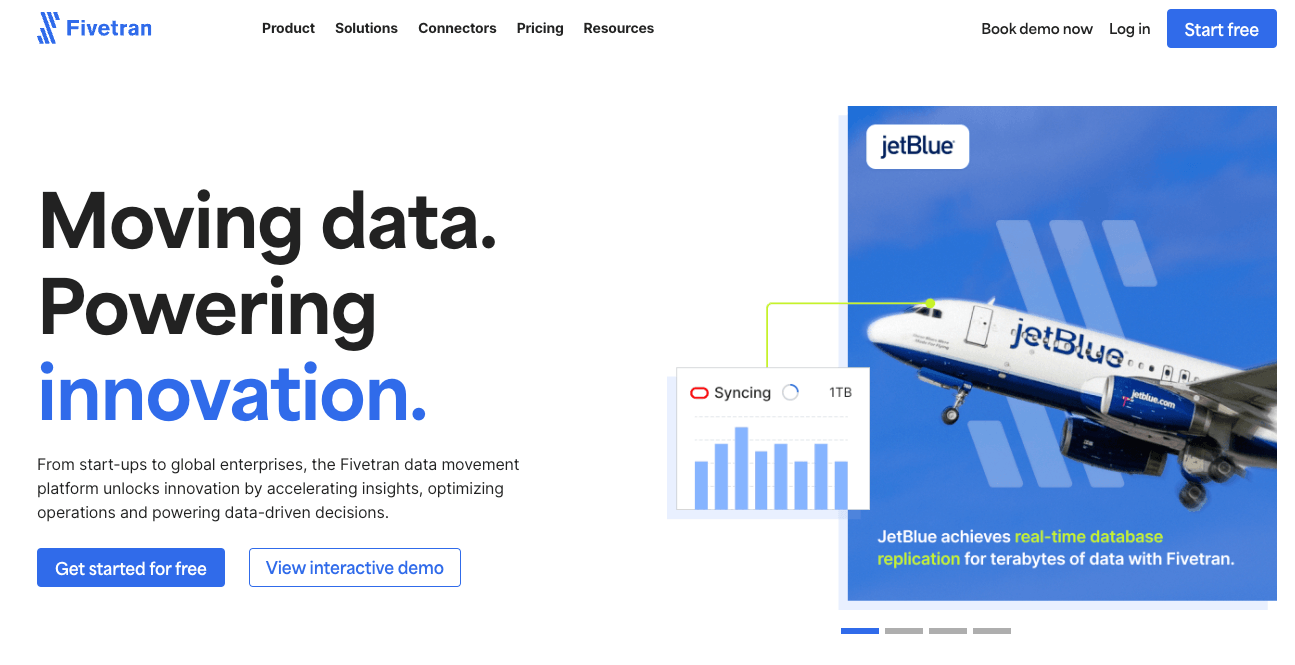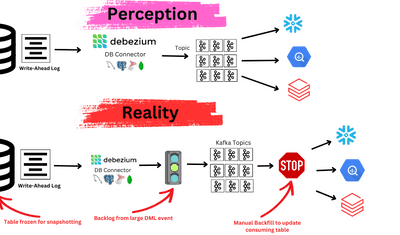
Effective data integration plays a pivotal role in empowering businesses to harness insights, identify trends, and drive impactful decision-making. While platforms like Integrate.io have long been popular for managing data workflows, they may not always meet the diverse and evolving needs of modern organizations. Businesses often require tools that provide enhanced capabilities, such as real-time data processing, scalability, and cost-efficient solutions, to keep up with dynamic data landscapes.
In this article, we’ll provide an overview of the Integrate.io platform, highlighting its key features and limitations. Additionally, we’ll explore the top 7 alternatives to Integrate.io in 2025, focusing on tools that address its shortcomings while offering robust features tailored for various data integration scenarios.
Integrate.io Overview
Integrate.io is a versatile cloud-based platform designed to streamline data integration, preparation, and processing for analytics. It supports both ETL (Extract, Transform, Load) and Reverse ETL, enabling businesses to transfer data between systems and create actionable insights efficiently. With its easy-to-use interface and automation capabilities, Integrate.io is particularly popular among small to medium-sized businesses aiming to simplify their data workflows.
The platform comes equipped with 150+ pre-built connectors, allowing seamless integration with popular data sources, such as databases, cloud storage, and SaaS applications. Integrate.io also supports Change Data Capture (CDC) for replicating changes in source datasets to the target system in near real-time, ensuring data consistency and reliability. Its deployment flexibility—running on both private and public clouds—offers businesses the ability to tailor environments to their specific security and performance needs.
Key Features of Integrate.io
- Automation and Scheduling: Simplifies workflows with built-in automation tools, enabling businesses to schedule data pipelines for hands-off operation.
- Robust Security Framework: Ensures compliance with industry standards, including SOC 2 certification, field-level encryption, and firewall-based access controls, protecting sensitive data at every step.
- Data Transformation: Allows data cleansing, enrichment, and preparation during the transfer process, ensuring datasets are ready for analysis upon arrival.
- Scalable Architecture: Handles batch and incremental loads efficiently, making it suitable for growing businesses managing diverse data sources.
While Integrate.io offers significant flexibility and security, it may not fully meet the needs of organizations requiring real-time data processing or advanced transformation capabilities for more dynamic workflows. These limitations drive businesses to explore alternative solutions that can better support evolving data demands.
Top 7 Integrate.io Alternatives
Explore the top five Integrate.io alternatives to enhance your data integration workflows.
1. Estuary Flow
Estuary Flow is a next-generation real-time Change Data Capture (CDC) platform built specifically for modern streaming and integration needs. As one of the most powerful Integrate.io alternatives, Estuary excels at capturing data from diverse sources and delivering it to multiple destinations with low latency and exactly-once processing semantics. Its unique event-driven architecture ensures data consistency and reliability, making it an ideal choice for analytics, operations, AI pipelines, and applications requiring continuous updates.
Key Features of Estuary Flow
- Real-Time CDC: Always-on CDC replicates data in real-time with exactly-once semantics, ensuring data consistency and reliability.
- Fully Integrated Pipelines: Simplifies the creation, testing, and adaptation of pipelines to gather, modify, and consolidate data from multiple sources.
- No-Code Connectors: Offers pre-built connectors for databases, message queues, and vector databases, reducing deployment time and complexity.
- AI Pipeline-Ready: Supports vectorizing data during loading and integrates with AI services, enabling seamless generative AI and machine learning workflows.
- In-Flight Transformations: Allows real-time data modification using SQL, TypeScript, or external APIs, providing flexibility for advanced transformations.
Why Estuary Flow Is a Leading Alternative to Integrate.io
Unlike Integrate.io, Estuary Flow is designed from the ground up for real-time data integration, offering features like event-driven architecture and in-flight transformations that make it better suited for dynamic and time-sensitive workflows. Its no-code connectors and robust CDC capabilities provide unparalleled speed and flexibility, ensuring it outperforms in scenarios like streaming analytics, AI model training, and operational dashboards.
Pricing
Estuary’s pricing is straightforward and cost-effective, starting at $0.50 per GB of data moved and $100 per connector per month, making it an affordable choice for businesses scaling data pipelines. For companies moving 10s of GB or more per month, Estuary becomes significantly more economical compared to other tools.
2. Skyvia
Skyvia, launched in 2014, is an integration platform that supports ETL, ELT, and Reverse ETL approaches for transferring data from a wide range of sources to preferred destinations. Known for its user-friendly no-code interface, Skyvia simplifies complex integration tasks such as data splitting, lookups, and transformations. These features make it a practical alternative to Integrate.io, particularly for businesses seeking flexibility and ease of use.
Skyvia also offers robust capabilities for incremental replication, ensuring consistent data synchronization between systems. With its ability to handle bi-directional data synchronization and extensive connector support, it caters to organizations looking for streamlined workflows without extensive technical resources.
Key Features of Skyvia
- Extensive Connector Library: Provides access to 160+ pre-built connectors for databases, cloud applications, and data warehouses. Users can also request new connectors to meet unique needs.
- Bi-Directional Synchronization: Enables synchronization of data with differing structures, preserves data relationships, and provides powerful mapping settings to configure operations.
- Backup and Restore: Offers scheduled and manual backups for cloud applications, ensuring data safety and easy recovery in case of loss during integration processes.
- Incremental Data Replication: Updates target systems with changes from the source file, ensuring real-time data consistency across platforms.
- Customizable Workflows: Supports advanced operations like data transformation, splitting, and conditional workflows to meet diverse integration requirements.
Considerations
- Limited Scalability for Enterprise Needs: Skyvia is well-suited for small to mid-sized businesses but may struggle with handling extremely large datasets or highly complex workflows required by enterprise-level organizations.
- Performance for Real-Time Use Cases: While it supports incremental replication, Skyvia primarily operates in scheduled intervals, which may not meet the needs of businesses requiring sub-second real-time data processing.
Pricing
Skyvia offers flexible pricing plans to suit various business needs, including a Free Plan for small-scale integrations with basic data volumes, a Basic Plan featuring ELT tools for handling limited data records, and a Standard Plan supporting both ETL and ELT processes for moderate data requirements. For more complex integration scenarios, the Professional Plan provides robust, scalable pipelines tailored to meet advanced workflows. These diverse pricing options make Skyvia an affordable and adaptable solution for businesses of all sizes.
3. Airbyte
Airbyte is an open-source ELT platform that has gained popularity for its flexibility, cost-effectiveness, and extensive community-driven approach. Launched in 2020, Airbyte has rapidly evolved, offering businesses the ability to self-host pipelines, customize workflows, and integrate with a growing library of connectors. With the launch of its cloud service in 2022 and the milestone 1.0 release in 2024, Airbyte has cemented itself as a go-to solution for organizations seeking a highly customizable alternative to managed platforms like Integrate.io.
Airbyte’s open-source framework makes it ideal for developers and engineers who require control over their pipelines. However, its reliance on batch processing and limited scalability may pose challenges for organizations handling high-volume or real-time workflows.
Key Features of Airbyte
- Open Source Flexibility: Allows businesses to self-host pipelines, enabling full customization and control over workflows and configurations.
- Extensive Connector Library: Features over 300 connectors, including 50+ actively maintained by Airbyte and the rest contributed by the community, supporting both standard and niche data sources.
- Batch Processing with CDC: Supports incremental and CDC-based replication using tools like Debezium, although it operates on a batch-based model with intervals starting from 5 minutes.
- Self-Service DataOps: Includes tools like Octavia, a CLI-based solution for managing pipelines and enabling integration with existing DataOps workflows.
Considerations
- High Latency: Airbyte’s batch intervals, starting at 5 minutes for self-hosted and 1 hour for cloud versions, make it unsuitable for real-time workflows.
- Scalability Issues: Limited scalability due to its worker-based architecture, which may struggle with larger workloads or high-frequency data loads.
Pricing
Airbyte’s pricing starts at $10 per GB for databases and $15 per million rows for APIs, with discounts for higher volumes. While ideal for technical teams needing customizable workflows, its batch processing and scalability limitations may not suit organizations requiring real-time capabilities.
Also read: Airbyte Alternatives
4. Informatica
Informatica is a comprehensive data integration platform tailored for large enterprises with complex workflows. Known for its advanced capabilities in data governance, master data management, and real-time integration, Informatica stands out as a robust alternative to Integrate.io for businesses requiring enterprise-grade solutions. Its hybrid deployment model supports cloud, on-premises, and multi-cloud environments, making it highly adaptable for diverse organizational needs.
Key Features of Informatica
- Advanced Data Governance: Includes tools for ensuring data quality, lineage tracking, and regulatory compliance, making it ideal for industries with strict data requirements.
- Real-Time Data Integration: Supports streaming and Change Data Capture (CDC) to process and replicate data in real-time.
- Comprehensive Transformation: Handles complex transformations in-flight to deliver analytics-ready data.
- Hybrid Deployment Options: Offers flexibility with cloud-native, on-premises, and hybrid setups to suit organizational requirements.
- Scalable Architecture: Capable of managing large datasets and high-throughput workflows across distributed environments.
Considerations
- Complexity: The platform’s wide range of features requires specialized expertise, making it less suitable for smaller teams.
- High Costs: Informatica’s pricing is consumption-based and generally higher than most alternatives, often requiring a custom quote.
Pricing
Informatica employs a consumption-based pricing model, charging per compute unit, along with additional fees for advanced features like CDC and real-time processing. Costs vary significantly depending on workload size, making it more suited for enterprise-scale budgets.
5. Matillion
Matillion is a cloud-native ETL platform designed for transforming large datasets directly within cloud data warehouses. With its intuitive interface and deep integration with platforms like AWS, Azure, and Google Cloud, Matillion provides an efficient and scalable solution for businesses managing complex analytics workflows. As an alternative to Integrate.io, Matillion excels in handling enterprise-scale workloads while offering powerful data transformation capabilities tailored for big data environments.
Key Features of Matillion
- Cloud-Native Design: Fully optimized to run within cloud data warehouses, minimizing latency and maximizing performance.
- Data Transformation: Provides advanced transformation tools for preparing data directly in platforms like Snowflake, Redshift, and BigQuery.
- Scalability: Handles large-scale workloads, making it ideal for enterprises managing high volumes of data.
- Task Orchestration: Includes features for scheduling, monitoring, and automating complex ETL workflows.
- Collaboration-Friendly: Enables teams to collaborate on data transformation tasks within a centralized platform.
Considerations
- ETL-Only Workflow: Matillion primarily focuses on ETL processes, requiring users to load and transform data within the warehouse.
- High Costs: The platform’s pricing structure can become expensive for smaller teams or businesses with moderate data needs.
Pricing
Matillion starts at $1,000 per month for 500 virtual core-hours, with higher-tier plans for advanced features and enterprise requirements. Its pricing is well-suited for large organizations but may not be cost-effective for smaller businesses.
Also Read: Matillion alternatives
6. Fivetran
Fivetran is a fully managed ELT platform designed to automate the entire data integration process, from extraction to loading, with minimal user intervention. Known for its extensive connector library and reliability, Fivetran is a strong alternative to Integrate.io for businesses seeking a hands-off solution to manage data pipelines. With automated schema evolution and support for cloud data warehouses, Fivetran simplifies data workflows, making it ideal for analytics-driven organizations.
Key Features of Fivetran
- Extensive Connector Library: Offers over 300 pre-built connectors covering databases, SaaS platforms, and cloud applications.
- Schema Evolution: Automatically updates pipelines to accommodate schema changes in source data without manual adjustments.
- Fully Managed Service: Handles maintenance, updates, and scaling, allowing users to focus on data analysis rather than pipeline management.
- Incremental Data Loading: Extracts only changed data to reduce load times and improve pipeline efficiency.
Considerations
- High Costs for Large Workloads: Fivetran’s pricing model, based on Monthly Active Rows (MAR), can become costly as data volume scales.
- Batch-Only Processing: Operates on a batch model with data refresh intervals, making it less suitable for real-time workflows.
Pricing
Fivetran’s pricing starts at approximately $1,000 per month for 2M MARs, with costs increasing based on data volume, connector type, and refresh frequency. Businesses requiring high-volume or low-latency pipelines may face significantly higher costs compared to alternatives like Estuary Flow.
Also Read: Fivetran alternatives
7. Hevo Data
Hevo Data is a no-code data integration platform designed for businesses of all sizes. It supports ETL, ELT, and Reverse ETL workflows, enabling seamless data movement and transformation between systems. Hevo’s user-friendly interface and real-time streaming capabilities make it an attractive alternative to Integrate.io, especially for organizations seeking quick pipeline deployment with minimal technical effort.
Key Features of Hevo Data
- No-Code Interface: Allows users to create and manage data pipelines using an intuitive drag-and-drop interface.
- Real-Time Streaming: Processes data in real time, keeping systems updated with minimal latency.
- Extensive Connector Library: Provides access to over 150 pre-built connectors for databases, SaaS platforms, and cloud storage.
- Reverse ETL: Enables data to flow back from warehouses to operational tools for enriched analytics and reporting.
- Basic Transformations: Offers tools for data cleansing, enrichment, and preparation during ingestion.
Considerations
- Limited Scalability: May struggle with extremely large datasets or highly complex transformations.
- High Costs at Scale: Pricing becomes less competitive as data volumes and refresh frequencies increase.
Pricing
Hevo Data offers a Free Plan for small-scale integrations, a Starter Plan at $239/month supporting 5 million rows with 150+ connectors, and a Business Plan with custom pricing for enterprises needing advanced features like HIPAA compliance and dedicated support. These options make Hevo suitable for small to mid-sized businesses.
Conclusion
Choosing the right data integration platform is essential for businesses aiming to streamline workflows, enhance scalability, and gain actionable insights from their data. While Integrate.io provides robust features for small to medium-sized businesses, its limitations in real-time processing, scalability, and cost-efficiency often lead organizations to seek more versatile alternatives.
This guide highlights the top 7 Integrate.io alternatives, each tailored to different needs. Estuary Flow stands out for its real-time capabilities and cost-effectiveness, while Skyvia offers a no-code solution with backup functionalities. Airbyte excels in open-source flexibility, and Informatica provides enterprise-grade data management. For cloud-native ETL, Matillion delivers deep integration with major platforms, while Fivetran offers automation and reliability. Finally, Hevo Data combines simplicity and real-time streaming for small to mid-sized businesses.
By evaluating these options based on your organization’s specific requirements, such as real-time needs, budget, and scalability, you can identify the platform that best supports your data integration goals. To experience the power of real-time data integration and scalability, try Estuary Flow today and take your workflows to the next level.

About the author
With over 15 years in data engineering, a seasoned expert in driving growth for early-stage data companies, focusing on strategies that attract customers and users. Extensive writing provides insights to help companies scale efficiently and effectively in an evolving data landscape.

